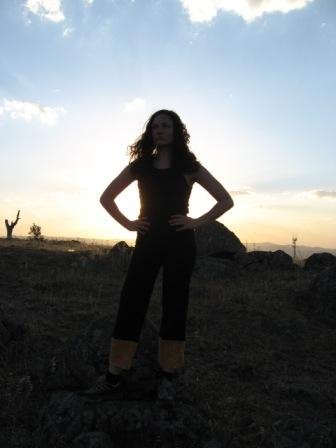Love
"To love" is a very peculiar verb, and "I love you" are three very peculiar words. "Love" is one of those words in the English language that is possible to use without the slightest shadow of understanding what it is. Furthermore, it is a word that is almost useless for communication - since I would guess there are as many definitions of love as there are thinking minds.
Yet it is a very commonly used word. "I love you. Do you love her? I love ice-cream. I loved your performance. If I loved it..." It can be declarative, interrogative, in the past or future tense, even conditional.
"I love you." Within the context of a relationship, these words are considered signifiers of the utmost importance. "Has he said 'I love you' yet?" "I'm not sure whether to tell him, because what if he doesn't say it back?" "Yep, he went and dropped the L-bomb." All of this in a world where it's acceptable to exclaim, "I love carrots!"
I have said 'I love you' to people when I had no real guess as to its true meaning in my mind. Would I die for the person? Would I let them have the bigger piece of cheesecake? Perhaps the former and not the latter? Perhaps the latter and not the former? Nonetheless, although I could not have defined "love," I knew it was the emotion I was feeling. And occasionally circumstances gave me the opportunity to test my definition of the emotion. By observing my choices while influenced by love, I could further refine the approximation I had of its secret manifestation within me.
Some of these example decisions cause me sincere regret, and I realize that's because they did not accord with what I would have expected a pure love to produce. These decisions reflect an inner definition of love that is not entirely worthy.
But 'worthy' of what? And from where do I get my notions of what a 'worthy love' actually is? Who or what instilled these ideals in me? Is it a simple matter of a combination, according to some biological alchemy, of all the different theories of love I've been exposed to over my life? Does it spring from my first memories of a huge form leaning over me whispering "I love you" and my subsequent memories of the behavior of that form toward me?
Perhaps these multitudes of definitions of love are all simply reflections, or rather refractions, of one huge, unitary, original love? That 'I love you' and 'I love carrots' and 'I loved your performance' really all are aspects, seen through the looking-glass, of the same thing? And, further, that we are all just pretending not to understand what it means? How else could philosophers have maintained a conversation over this supposedly mysterious concept all these years?


2 Comments:
This comment has been removed by a blog administrator.
I once tried to ban myself from using the word love in my day to day activities in an attempt to preserve the sacred meaning of the word. It failed. Well, I failed to abstain. Blasted conditionalization.
But some time ago I learned that in other languages, there's different meanings for the word love. For instance, in Hebrew, there's 3 words for love. And I'm spelling them phonetically because I can't remember it. Blasted conditionalization:
Rya - to like something or someone. Used to define friends and love of carrots. (you gotta role the R)
A-Hya - The most ultimate expression of connection, longing for, appreciation etc. for something or someone. An A-Hya moment is like one when you're looking your partner in the eyes and totally caught up in the moment.
Dode - Sexual love, not including malicious lust.
Sometimes I wonder if inventing new words for Love would be the solution. I tried telling my friend Renee that I Rya her. She didn't get it.
Post a Comment
<< Home